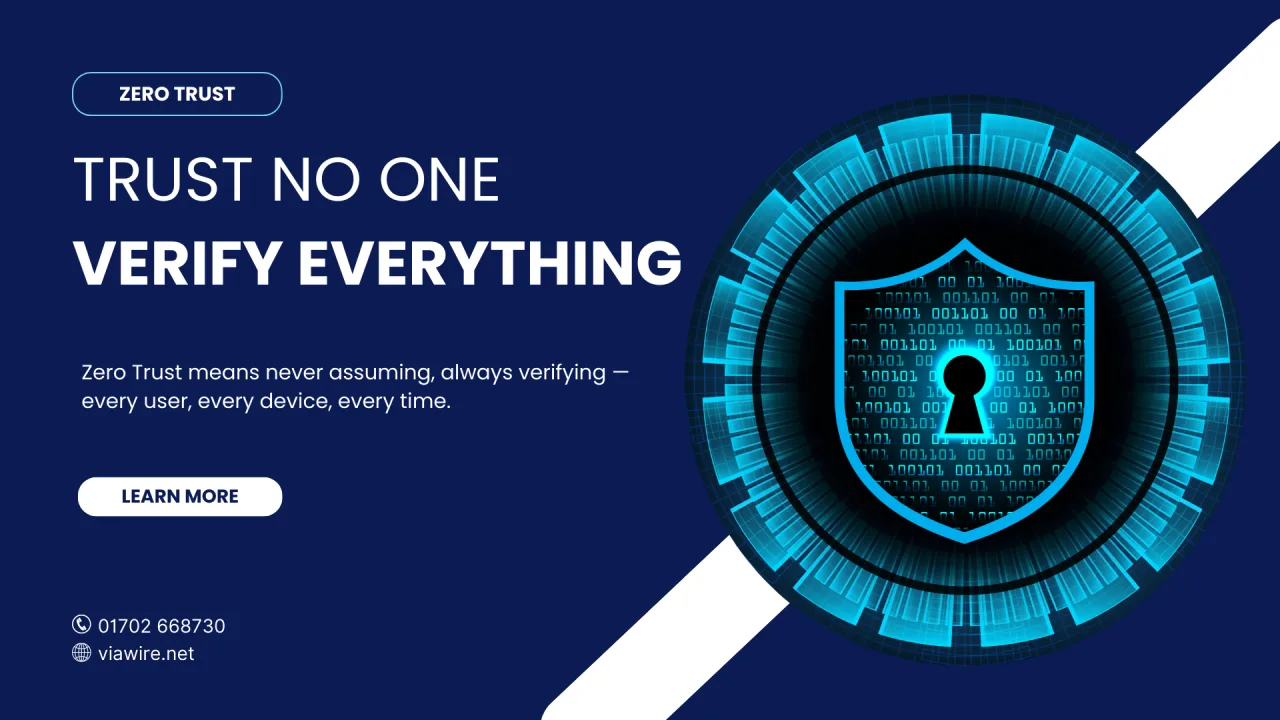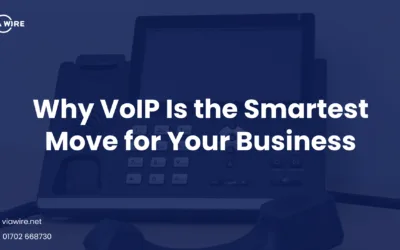For years, small and medium-sized enterprises (SMEs) relied on firewalls, VPNs, and antivirus software as their first line of defence. But with hybrid work, cloud-first operations, and increasingly sophisticated cyber threats, those tools are no longer enough.
Enter Zero Trust Security, a modern framework built on a simple but powerful principle: 👉 Never trust, always verify.
It’s more than just an industry buzzword. For SMEs in the UK, Zero Trust is becoming an essential strategy for survival.
🌍 Why Zero Trust Matters for UK SMEs
Many SMEs assume advanced security is “for enterprises only”. But the evidence shows otherwise:
- 58% of UK SMEs reported experiencing a cyberattack in the past year (Federation of Small Businesses, 2024).
- The average cost of a cyber breach for a UK SME is now £65,000–£115,000—often enough to put a company’s future at risk.
- With over 40% of UK employees working remotely at least some of the time, the attack surface has expanded dramatically.
Traditional perimeter-based security is built on the assumption that anything inside your network can be trusted. Zero Trust flips that model on its head; continuously verifying users, devices, and context before granting access.
⚡ The Benefits of Zero Trust for SMEs
1️⃣ Protect Hybrid Workforces Staff are logging in from homes, cafés, and co-working spaces. Zero Trust ensures that only secure, compliant devices can connect to business systems.
2️⃣ Reduce Insider and Credential Risk Even trusted employees can be tricked by phishing or reusing weak passwords. Zero Trust uses real-time policies to block suspicious activity before it causes damage.
3️⃣ Simplify Compliance With frameworks such as GDPR and Cyber Essentials Plus becoming standard, Zero Trust makes compliance easier by enforcing secure access policies across devices and apps.
🛠️ How UK SMEs Can Start Implementing Zero Trust
You don’t need to overhaul everything overnight. Here are three practical steps SMEs can take straight away:
- Enable Multi-Factor Authentication (MFA): Microsoft research shows MFA prevents over 99% of identity-based attacks.
- Adopt Conditional Access Policies (Microsoft Entra): Automatically block logins from risky locations or suspicious devices.
- Use Endpoint Management (Microsoft Intune): Ensure only compliant devices can access company data, whether they’re Windows, macOS, iOS, or Android.
The best part? Many of these features are already included in Microsoft 365 Business Premium, giving SMEs enterprise-grade security without enterprise-level costs.
💡 The Bottom Line
Zero Trust isn’t about locking everything down or slowing your business. It’s about creating the confidence to grow securely in a digital-first economy.
For UK SMEs, adopting Zero Trust means:
✅ Lowering the risk of a costly breach.
✅ Protecting staff and customers across hybrid work environments.
✅ Building a scalable security foundation for the future.
💭 Final Thought: Zero Trust doesn’t mean saying “no” – it means saying “yes” to secure, flexible growth.
👉 What’s holding your organisation back from adopting Zero Trust? Join the conversation in the comments.
For more detail, see Microsoft’s guidance here: Zero Trust explained




0 Comments